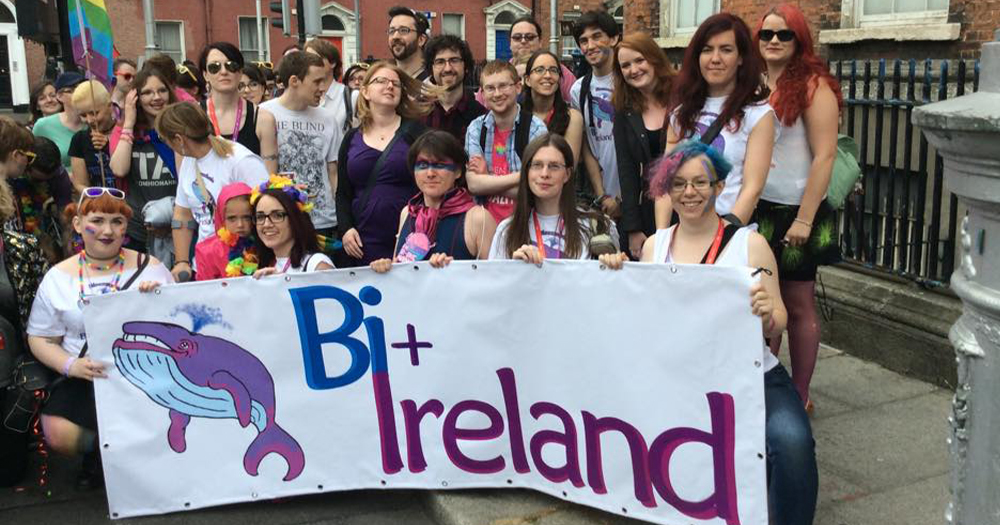There have been many conversations about what it means to be an ally and the many ways in which people can support marginalised people and groups. What better time to talk about being an ally to bisexual, pansexual and other non-monosexual people (Bi+ people) than during Bisexual Awareness Week.
Here are three simple things you can do to support bisexual people as an ally:
Accept that our bisexuality is real:
This might sound obvious, but when so much of the discourse around bisexuality—both online and offline—still focuses on whether or not bisexuality, pansexuality and other non-monosexualities are real, it is frustrating to constantly have to defend your very existence.
Believe us when we talk about our sexuality. Take us at our word that we know how best to describe ourselves. Do not question whether we might be gay or a lesbian and not ready to come out fully or whether we are really straight.
Yes, sexuality can be fluid for some people—myself included, I was out as a lesbian before realising that I was bisexual—meaning that the labels they use for themselves may change. Experiences like mine are never used to claim that lesbians do not exist, yet the reverse – bi+ people coming out as gay or lesbian – is somehow supposed to prove that all bi+ people are lying.
Call out biphobia when we’re not around:
Picture the (pre COVID-19) scene; you’re out with a group of friends when one of them cracks what they think is a hilarious ‘joke’ about bi+ people not being able to pick a side. An uncomfortable laughter spreads throughout the group as all eyes turn to your bisexual, pansexual and other non-monosexual friends. Maybe the bi+ people present feel like calling the joke out or maybe they are drained by always having to do this and wish you, their friend, would step up instead.
Sometimes simply asking “why do you think that?” is enough to help people realise why what they have just said is damaging. A lot of the time calling people out is more complex, but that is all the more reason to step up so that bi+ people are not the only people dealing with it.
If you would apologise in private for your friend’s joke—something I’ve had gay, lesbian and straight people all do to me— please call it out as it is happening.
Include us in LGBTQIA+ spaces:
A 2019 ‘Society At A Glance’ report from the Organisation for Economic Co-operation and Development (OECD) shows that there are as many bi+ people living in Ireland as there are gay and lesbian people. Yet we are still considered to be the minority within the LGBTQIA+ community.
The disparity between the perception of bi+ people being a tiny minority and the reality leads to LGBTQIA+ groups and spaces not always being inclusive of us. More than being inclusive, LGBTQIA+ spaces need welcome bi+ people.
This starts with not assuming that everyone in an LGBTQIA+ space is gay or a lesbian and includes understanding that not all of the different gender couples you encounter at Pride are straight. That’s not to say that there isn’t a conversation to be had around the possible issues with straight people and couples attending Pride and viewing it as nothing but a party, but rather to emphasise that bi+ people should be part of this discussion rather than being the subjects of it.
I’ve marched with a few different organisations at Pride over the years, yet standing behind the Bi+ Ireland banner is the only place mentioning my husband hasn’t been met with quizzical looks.
Bisexual, pansexual and other non-monsexual people have always been part of the LGBTQIA+ community. Now is the time to ensure that we aren’t the only ones combatting biphobia.
© 2020 GCN (Gay Community News). All rights reserved.
Support GCN
GCN is a free, vital resource for Ireland’s LGBTQ+ community since 1988.
GCN is a trading name of National LGBT Federation CLG, a registered charity - Charity Number: 20034580.
GCN relies on the generous support of the community and allies to sustain the crucial work that we do. Producing GCN is costly, and, in an industry which has been hugely impacted by rising costs, we need your support to help sustain and grow this vital resource.
Supporting GCN for as little as €1.99 per month will help us continue our work as Ireland’s free, independent LGBTQ+ media.
